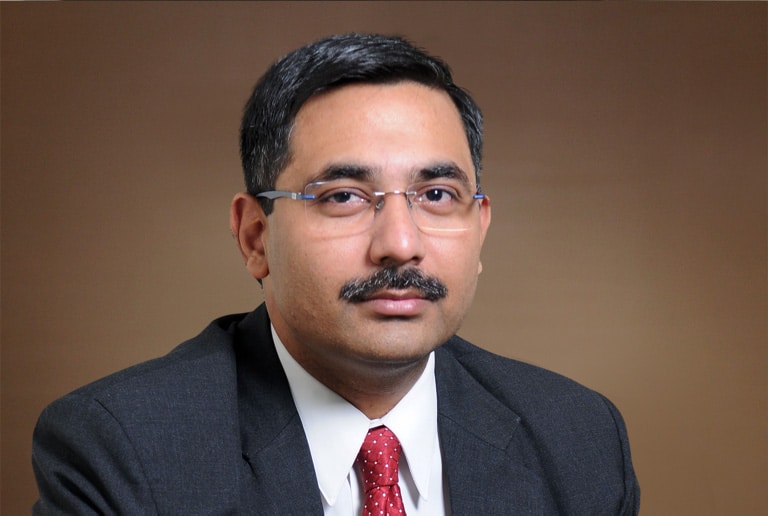The Group CIO of Apollo Hospitals, Arvind Sivaramakrishnan on what it takes to roll-out AI models for consistent healthcare delivery Interaction by Anil Chopra
 AI has the potential to completely transform healthcare in India. Arvind Sivaramakrishnan, Group CIO at Apollo Hospitals feels that it can be used to maintain consistency in the quality of healthcare delivery despite the presence of variable talent in the country. We interacted with him to understand how he’s using AI to transform healthcare at Apollo hospitals.
AI has the potential to completely transform healthcare in India. Arvind Sivaramakrishnan, Group CIO at Apollo Hospitals feels that it can be used to maintain consistency in the quality of healthcare delivery despite the presence of variable talent in the country. We interacted with him to understand how he’s using AI to transform healthcare at Apollo hospitals.
At an overall level, he feels that even though people are very well aware of AI, its correct understanding and usage are still missing. “People understand its benefits and potential, but the mechanism to capture transactional data is not robust enough across sectors. If the base itself is weak, you can’t expect to get successful outcomes by applying it onto deep learning models”, he feels.
Enterprise Vision and Strategy for AI
Apollo has a well-defined vision and strategy for AI, and has already built 4-5 AI models that are successfully running in the group. These do risk scoring of Cardiovascular disorders, pulmonary disorders, and liver diseases. They scan health records and apply intelligence to understand the state of health condition of patients, and provide quick assistance to care providers so that they don’t miss out on important medical information during treatment.
Despite so many models working well at Apollo, Sivaramakrishnan feels that they’re still at an intermediate stage as far as enterprise AI deployment is concerned. Though they’ve already identified many areas that could benefit from AI, they’ve not yet rolled them out as it takes a lot of time for AI models to mature. “It first requires doing prospective and retrospective studies along with minimizing false positive, which is all highly time consuming”, said Sivaramakrishnan. For instance, it took them about a year and half to make their cardiac algorithm function properly.
Besides core healthcare processes, models are also being considered to improve planning in human resource allocation, another critical aspect for providing optimum patient care in healthcare. One model being worked on is to enhance post-surgery care by predicting the next steps depending upon the patient’s condition. A simple case in point is when patients are kept waiting because the room or ICU that they’re to be shifted in is not ready. If data is available that can anticipate these requirements, it improves care considerably. Arvind strongly feels that AI/ML/Deep Learning/Prescriptive and Predictive algorithms will provide a strong foothold for the organization to embed technology into every process.
The group is also using ML algorithm-based models to bring better efficiency into the back office like finance and procurement. They are working on models that use predictive analytics along with linear six sigma models to improve back-office efficiency, such as analyzing stocks and re-ordering.
Lastly, it’s also about having the right mix of people in the team. Arvind has experts, IT people, those who understand data, data scientists, etc. Plus, they have a partnership with Microsoft where data scientists from the software giant are also used.
Ensuring AI Deployment Success
The AI models being built at Apollo aren’t meant for a single hospital in one location, but for the entire eco-system. Moreover, a wide range of people are involved from the beginning for studying various models. This way, everybody understands its pros and cons from the beginning, which makes change management and adoption much easier. “Instead of having trust issues, people are convinced that AI is being deployed to help them. Doctors are also more participative when they see the AI toolkits improving the degree of surety in their treatment and diagnosis”, he said.
The entire enterprise system at Apollo is standardized, which make AI deployment easier. It’s another critical success factor for rolling out AI initiatives. Besides standardization, all AI models being built are constantly measured for accuracy and deliberated with the clinical ethics committee. All false positive instances, successes and failures are analyzed and discussed. Only if they’re found fit for large scale consumption does they get rolled out across the enterprise.
Challenges Faced
There are a number of challenges in embracing AI. First, according to Arvind is to clearly define the problem statement and ensure that you have the data to support your hypothesis. Next you have to get all stakeholders involved. This can be quite challenging as they already have their own full-time jobs to worry about. This is where change management become critical. Next are the algos themselves and developing and training them with a high degree of accuracy, ensuring all false positives are constantly eliminated.
Benefits Gained from AI Roll-Out
Arvind is using various models to help the clinicians at Apollo to catch problems early. It improves the quality of preventive health check-ups. “With problems detected early on, it sometimes rules out the need for a patient to undergo surgery and simply be treated with medicines alone”, he said.
For the future, Arvind continues to build new AI models, do thorough prescriptive and predictive analytics, and ensure everyone’s involved right from the beginning in removing false positives. The idea is to do everything possible to enhance the quality of healthcare service being offered by Apollo.













